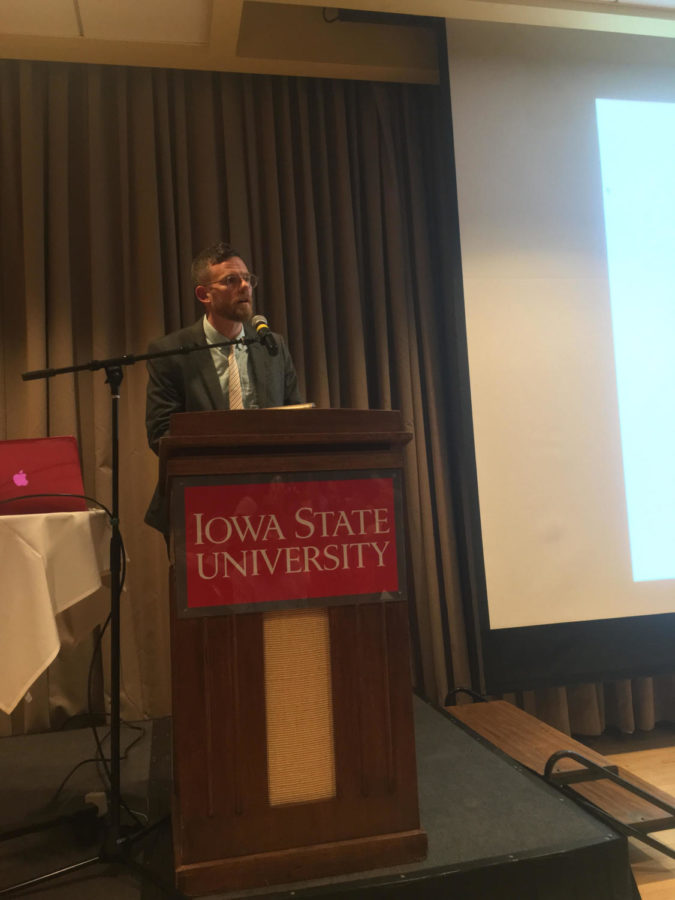Human rights advocate speaks out against Myanmar genocide
November 29, 2017
There’s a genocide happening in 2017.
As this article is being published, more than 145 thousand Rohingya Muslims sit crowded in internment camps throughout Myanmar, a recently sovereign nation located between China and India.
Many of their friends and family, both young and old, have been killed by the Myanmar military, casualties of an uncounted scale. More than 700 thousand Rohingyas fled the harsh conditions, creating a refugee crisis in Bangladesh. They are a people without a state.
Some might call it ethnic cleansing. The Myanmar Government calls it “forced clearance operations.”
Matthew Smith, founder of the human rights group Fortify Rights, has worked to uncover crimes against humanity throughout Indochina since 2005. He calls the situation in Myanmar genocide.
“These internment camps are really modern day concentration camps. The Rohingyas are suffering avoidable deprivations… soldiers have burned down villages, shot men, women and children, slit the throats of civilians and shot infant children at point blank range,” Smith said.
He continued, “Our findings indicate genocide has been committed.”
Smith delivered his grim message to more than 300 students, faculty and community members who crowded into the Sun Room of the Memorial Union the evening of Nov. 9.
Hardly any chairs stood empty as Smith recounted eyewitness testimonies of Buddhist extremists beheading Rohingya children and Myanmar soldiers raping girls as young as 9 years old.
“They [Myanmar soldiers] burn mosques, schools, food halls, anything from the Rohingya culture,” Smith said. “Every women we talked to who experienced sexual assault was gang raped.”
The situation in Myanmar escalated since citizenship laws passed in 1982 didn’t regard Rohingyas as legal Myanmar citizens. Smith talked of Myanmar as a country largely ruled by its military with “mostly cosmetic advances in democracy.”
Smith also spoke of violent “tit-for-tat exchanges” between Rohingyas Muslims and Myanmar Buddhists. Rohingya militants have killed Myanmar soldiers, murdered fellow Rohingya civilians suspected as government informants and even coerced other Rohingyas to join their ranks under threat of execution.
Smith said the actions of the Rohingya militants is reprehensible, but they don’t justify the response of the Myanmar military.
“They [Rohingya militants] have a limited capacity for violence, but the government still considers them to be an existential threat,” Smith said.
He also told the audience of a state-sponsored propaganda campaign in the Myanmar press, which refers to Rohingyas as “thorns to be removed.” Many Myanmar civilians don’t believe their government is carrying out atrocities against the Rohingya people.
“It really surprised me to hear about a genocide happening right now,” said Brooke Chesmore, sophomore in international studies. “Even children are being targeted by the military, and nobody really knows it’s going on.”
Chesmore wasn’t the only student shocked by the situation in Myanmar. Mostafa Youssef, senior in aerospace engineering, shared her surprise.
“It’s devastating how big the issue is… I had no idea it was happening on this large of a scale,” Youssef said.
Youssef said the plight of the Rohingya refugees reminded him of the massive amounts of Syrian refugees who were forced to flee their homes in recent years.
Smith and Fortify Rights are working to get the Myanmar situation recognized as a crime against humanity by the U.N.
“When a government fails to investigate, prevent or prosecute such offenses, other organizations need to stand up,” Smith said.
















